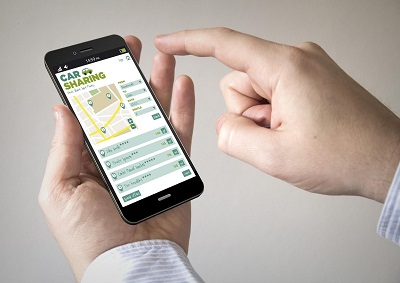
We should Uberize our safety net.
This might appear to be a bold statement but it is actually rather commonsensical. Cesare Rhonda and Derek Khanna have put the idea forward in an interesting op-ed for Politico. The so-called sharing economy lowers transaction costs and makes the equilibration of supply and demand easier. If a number of the jobs that can now find “customers,” thanks to Uber or Thumbtack, can actually be used by some people to supplement income, so they should be available to people that do not have, presently, an income to supplement.
Historically, some opponents of workfare have argued that work requirements are untenable because the government cannot find a job for every welfare beneficiary. That may have been true years ago, when a “job” was binary and full time, but today the gig economy offers the solution: It can easily and quickly put millions of people back to work, allowing almost anyone to find a job with hours that are flexible with virtual locations anywhere. Much of this work is well above minimum wage and it can further the careers of workers as well. With a wide array of different employment options, workers can choose jobs better tailored to their skill-sets and upgrade their skills, which can advance their careers.
Government should thus expand the boundaries of “welfare-to-work” to include all of the “new” professions: “work requirements should ensure that everyone who is capable of performing a job in the gig economy does so”.
I can easily picture many people who are likely to protest that this is another strategy of the “top 1%” to keep low skilled workers’ salaries down. It seems to me that they tend to overlook the importance, for self esteem and dignity, of actually performing a job. The “uberization of welfare” may be a somewhat over-the-top slogan. But certainly the sharing economy is allowing some people to experience the feeling of self-reliance and independence.
The article is here.

READER COMMENTS
Walter Boggs
Feb 22 2016 at 8:38am
Interesting idea. Another way of saying that far more people could find work if antiquated government rules were not in the way.
ThaomasH
Feb 22 2016 at 10:32am
Sounds like a good idea. It would undermine (if it were an evidence-based belief to begin with) that most poor people are poor because they do not want to work.
Hazel Meade
Feb 22 2016 at 2:43pm
This is an idea that sounds much easier in concept than it would be in implementation.
There are already dozens of websites and apps devoted to freelance gigs, everything from graphic design to grocery delivery. But there’s no clear way to organize all the different kinds of work and varying talents of the people looking for it in a format that is efficient for everyone to use, and which produces results that will make people want to use it.
I would think this is probably an activity best left to the market. Perhaps some company like Uber will develop an all-encompassing app that efficiently matches employees seeking work to employers. If the government tried to do it, it would likely end up being a clunky failure (like any number of other private attempts).
john hare
Feb 22 2016 at 4:52pm
This is an idea worthy of further thought, such as Hazels’ suggestion of setting up companies to organize these activities.
Prakash
Feb 23 2016 at 2:13am
Derek links to Morgan Warstler’s original idea as well. Morgan has a slightly more developed concept on these lines. He’s worked out many incentives and gamed it out well after receiving feedback.
Following below is my riff on the idea. The most basic implementation of the idea seems to be 3 interfaces.
There will be a real-name ID service which the government will have to create and run, helping potential employers and employees to login with their real names. Most websites have similar login services for fb and google and it shouldn’t be much of a stretch for them to accomodate this.
The second interface will be the data of the work + feedback provided being sent to the repository for the payment. This data will also be made public to view, the third service.
The aggregation and presentation of the various potential employers in your area can actually be privatized to multiple potential websites. Maybe there will be still be one. Maybe there will be many. This is something that is better handled by posting a standard that potential employers may need to follow, rather than a website.
Dan Jennings
Feb 23 2016 at 8:46am
Seems that many people assume the operation of a business or market is to provide jobs and the consumer is secondary. Silly, people.
john hare
Feb 23 2016 at 2:48pm
Dan,
How is setting up a service that connects supply with demand making consumers secondary?
Comments are closed.